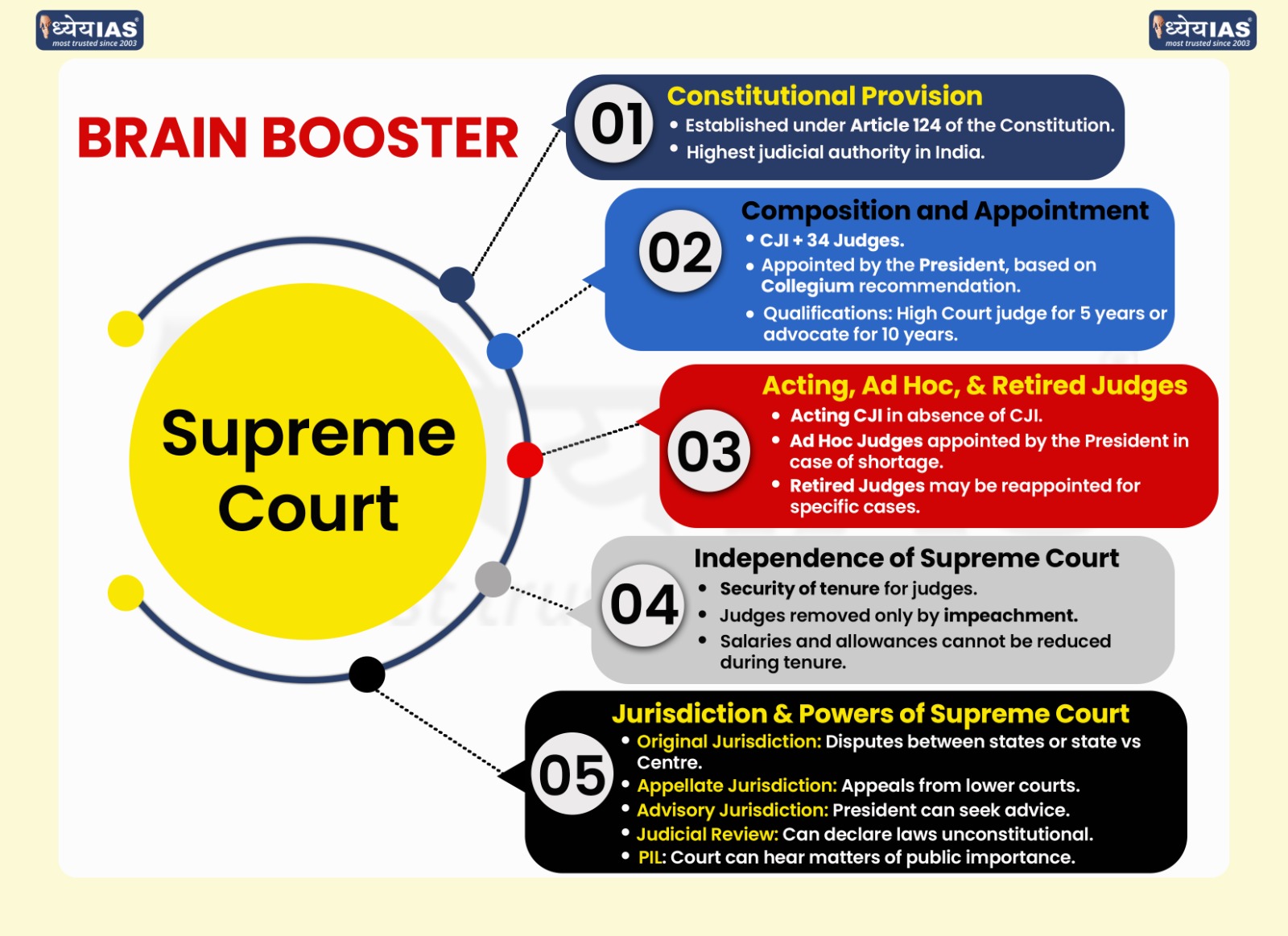Context:
In a major step to promote transparency and build public trust, the Supreme Court of India has ordered that all its judges must now publicly declare their assets. This decision was taken unanimously by all sitting judges (Full Court) on April 1, 2025.
Background
This new rule is a major shift from earlier practices:
- 1997: The Supreme Court adopted a rule where judges had to declare their assets privately to the Chief Justice of India (CJI). This included assets of their spouses and dependents.
- 2009: The Court allowed judges to voluntarily disclose their assets online, but not all judges followed this rule.
Now, with the April 2025 directive, declaring assets is mandatory for all judges, showing the Court's strong stand on accountability.
As of May 6, 2025, 21 out of 33 sitting judges have uploaded their asset details on the Supreme Court’s official website.
About 1997 “Restatement of Values of Judicial Life”:
It is a code of ethics adopted by the Supreme Court outlining standards of conduct for judges of the SC and High Courts. Key principles include:
- Avoiding actions that may erode public faith in the judiciary.
- Recusing from cases involving family or friends.
- Not expressing views on political matters.
- Refusing gifts/hospitality except from close family and friends.
- Avoiding business or trade engagements.
- Not seeking financial benefits connected to office unless clearly authorized.
About Supreme Court:
Articles 124 to 147 under Part V of the Constitution of India deal with the Supreme Court’s composition, jurisdiction, powers, independence, procedures, and other related matters
Composition
- Initially 8 judges; currently 34 judges including the Chief Justice of India (CJI).
- Parliament can alter the number of judges under Article 124.
Appointment of Judges
- Appointed by the President, after consultation with CJI and senior judges.
- Guided by Collegium System (from Second and Third Judges Cases).
- Judges serve until the age of 65 years.
Qualifications (Article 124(3))
- Must be an Indian citizen.
- Served as HC judge for 5 years or practiced as HC lawyer for 10 years, or
- Be a distinguished jurist in President’s opinion.
Types of Judges
- Acting CJI (Art. 126): When CJI is absent.
- Ad hoc Judges (Art. 127): Appointed temporarily from HCs.
- Retired Judges (Art. 128): Reappointed with President’s consent.
Removal of Judges
- Grounds: Misbehaviour or incapacity.
- Follows process under Judges Inquiry Act, 1968.
- Requires special majority in both Houses of Parliament and President's assent.
Jurisdiction & Powers
- Original Jurisdiction (Art. 131): Disputes between Centre and States.
- Appellate Jurisdiction (Arts. 132–136): Appeals on constitutional/criminal/civil matters.
- Advisory Jurisdiction (Art. 143): President can seek opinion.
- Writ Jurisdiction (Art. 32): Enforce Fundamental Rights.
- Court of Record (Art. 129): Contempt powers.
- Judicial Review: Can invalidate unconstitutional laws/actions.
Conclusion
The Supreme Court’s move to make judges' asset declarations public is a significant stride toward greater transparency and public accountability. As more judges comply with the directive, the initiative is likely to further bridge the gap between the judiciary and the public it serves, reinforcing the trust that forms the cornerstone of democratic institutions.







